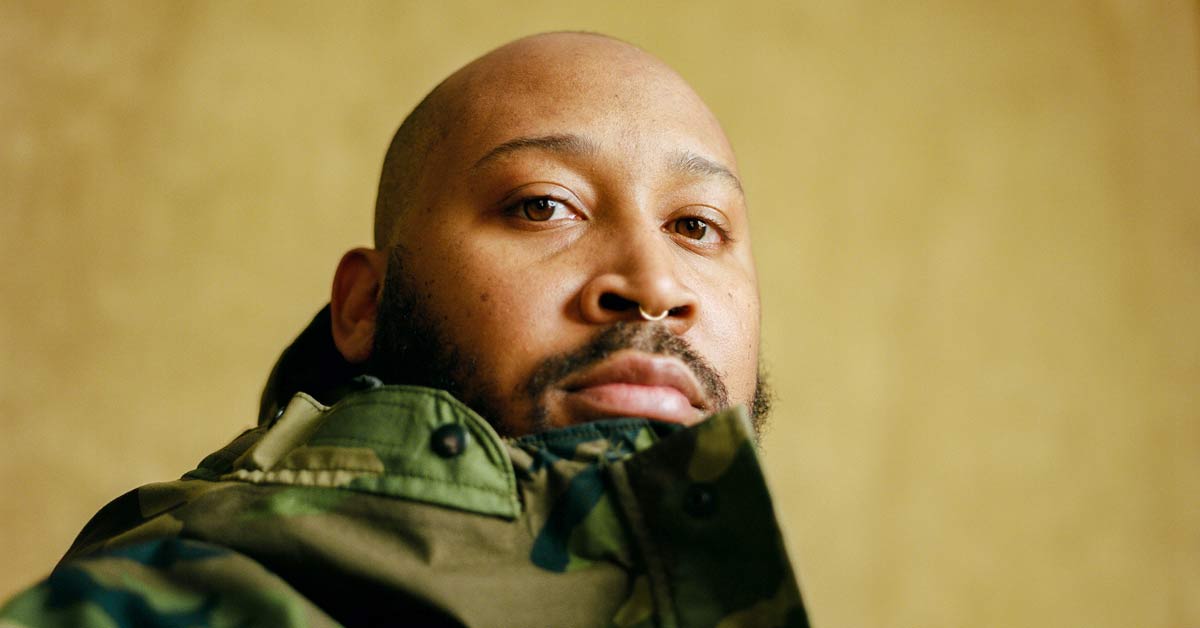The National treat rock music as a salve. For over two decades, they’ve crafted songs that set out to navigate a hurting world, creating a space where dispirited souls can unite and raise a toast to another day. In that time, they’ve grown a lot as artists and songwriters, evolving from an underdog indie outfit into one of the most adventurous and influential bands of our time, with an impact that’s reverberated through the worlds of alternative rock, avant- garde classical composition, and even Top 40 pop (not to mention the campaign of at least one former president).
Remarkably, The National survived the rollercoaster ride from dive bars to festival-headliner slots with their original lineup intact. They’re a band of brothers in the figurative and literal sense, with enigmatic yet charismatic lead singer, Matt Berninger flanked by: Aaron and Bryce Dessner, the gifted multi-instrumentalists who provide dreamy texture and cinematic sweep; and Scott and Bryan Devendorf, the telepathic rhythm section that drives the songs to their dramatic peaks. Though they all hail from Cincinnati, The National officially came together in Brooklyn in 1999, just as the borough was becoming the new epicenter for underground rock. Compared to the then-fashionable, post-punk sounds peddled by their peers, the artful Americana of The National’s first two albums — 2001’s self-titled debut and 2003’s Sad Songs for Dirty Lovers — positioned them as outsiders to a scene of outsiders.
But with 2005’s Alligator, The National started to connect with a wider audience of fellow forlorn romantics. Word spread of their electrifying live shows, which often found Berninger’s tightly coiled intensity manifesting in unpredictable ways, whether he was swimming through the crowd or climbing venue walls. In 2007, Boxer arrived with a set of tragic and triumphant hymns that both tapped into the unsettled tenor of life during the Iraq war and hinted at a cautious hope that a better world could emerge. Among them was the immortal “Fake Empire,” a song that would eventually soundtrack Barack Obama’s march to The White House in a 2008 campaign ad.
Over the next decade, The National only seemed to grow more popular the more they expanded their sound. Released in 2010, the widescreen High Violet was the first of their albums to hit the top 5 in the U.S. and around the world. Meanwhile, 2013’s moody and majestic Trouble Will Find Me scored them their first Grammy nomination for Best Alternative Music Album. Debuting at no. 2 on the Billboard charts, 2017’s Sleep Well Beast continued The National’s masterful tightrope walk between anthemic accessibility and intricate rhythmic experimentation, earning them a Grammy Award for Best Alternative Music Album. The follow-up, 2019’s I Am Easy to Find, was given an elaborate multimedia treatment, incorporating a short film made by Academy Award- nominated director Mike Mills and starring Oscar-winning actress Alicia Vikander.
But The National’s official discography only tells part of their story. The band’s extracurricular activities form a dense ecosystem of solo releases (like Berninger’s 2020 effort, Serpentine Prison), side projects (see the Devendorf brothers’ avant-rock supergroup lnzndrf), film scores (Bryce’s Grammy- nominated score for The Revenant), charitable initiatives (the 7- inches for Planned Parenthood single series), and even collaborative online music portals (37d03d.com, a.k.a. PEOPLE). And in the summer of 2020, Aaron brought The National’s atmospheric aesthetic into the heart of the mainstream when he was tapped to co-produce Taylor Swift’s Album of the Year Grammy winner Folklore and its companion release, Evermore, which featured the band and a vocal duet with Berninger on the wistful serenade “Coney Island.” It was a surprising-yet-fitting cap to The National’s first two decades. This is, after all, a band that’s never compromised its sound to actively court a wider audience. Through patience and purity of vision, the world came to them.



